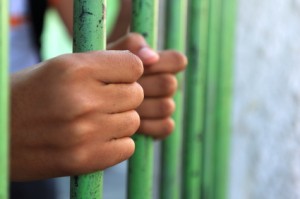Sign up for our information-filled email newsletter

Students Behind Bars, Juvenile Justice

July 12, 2013
Hello again,
I’m headed out to Seattle this week for the NCJFCJ (National Council of Juvenile and Family Court Judges) conference to get a closer look at some of the challenges that law enforcement and youth are facing together. In honor of the conference I would like to talk about some research that shows the effects that incarceration can have on the development of youth.
I found a working paper, JUVENILE INCARCERATION, HUMAN CAPITAL AND FUTURE CRIME: EVIDENCE FROM RANDOMLY-ASSIGNED JUDGES (Azier, Doyle Forthcoming), for a little light reading to familiarize myself with some of the current research in the field. Many of the efforts being directed toward students are for the purpose of removing barriers to learning. What struck me about this article is that incarceration can directly impact students and the community. It may not be that big of a surprise, but according to this paper, the difference between putting a youth in a correctional facility vs. putting them on probation or monitoring, is huge.
The article states (no big surprise here) “We find that juvenile incarceration reduces the probability of high school completion and increases the probability of incarceration later in life.” The amount, however, is what I found interesting in the paper.

So in other words students who get in trouble with the law and are put in jail are almost twice as likely not to graduate and to go back to jail before they turn 25. That is some food for thought if you are a judge, principal or a school resource officer. All of these numbers are based on the information gathered into multiple databases in the state of Illinois.
And for everyone else not involved in the education system, there is the economic impact to consider when talking about incarceration; “Juvenile incarceration is expensive, with expenditures on juvenile corrections totaling $6 billion annually in the US, and the average (direct) cost of incarcerating a juvenile is $88,000 for a 12 month stay (Mendel, 2011).” So, even if you think that this problem doesn’t affect you, it does, most notably in the form of taxes.
This should give you a peek at what some of the judges that handle these cases have to consider. While attending the conference last year, I learned that these are hard working people who deal with complex issues with real world consequences on a day-to-day basis. They do not deal with the cream of society but with the harsh realities that most of us might never see. I’m heading out to see them again on Saturday to see if I might be able to help find some solutions through data and student surveys, to serve those students who are at risk, and to hopefully gain more insight into the world of family and juvenile courts.
Here is a sample of some of the issues discussed at the conference: Child abuse and neglect, trauma, custody and visitation, judicial leadership, juvenile justice, sex trafficking of minors, family violence, drug courts, psychotropic medications, children testifying in court, detention alternatives, substance abuse, and the adolescent brain.
Aizer, Anna, and Joseph J. Doyle, Jr. “Juvenile Incarceration, Human Capital And Future Crime: Evidence From Randomly-Assigned Judges.” NBER Working Paper Series (2013): June 2013.
Mendel, Richard A. 2011. No Place for Kids: The Case for Reducing Juvenile Incarceration. Baltimore: The Annie E. Casey Foundation.





